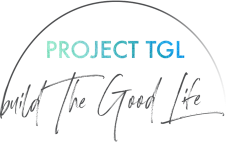Motivation can be hard. You know you should crunch those numbers, do those chores, establish that exercise routine, write that report, paint that bedroom… but you just don’t want to. How are you ever going to get around to it, when it’s so mind-numbingly unmotivating?
I talk about motivation in my workshops, and at some point someone always asks: “What do you think about motivating myself with rewards?”
You know the idea: making little deals with yourself, the way your teachers used to promise five extra minutes of play if you got your maths work done.
If I get this report done today, I’ll allow myself to buy a new book.
Each time I finish marking a paper, I can have one piece of chocolate.
Every time I do a full workout, I can buy myself lunch instead of packing it.
Does bribing yourself actually work?
Well… it’s complicated.
In favour of rewards is the fact that your brain needs rewards to get things done. It’s impossible to get motivated if there’s nothing in it for you.
But that’s not all there is to it! Before you promise yourself that you can binge on Netflix tonight if you only finish that bloody spreadsheet, consider this:
The two types of motivation
There are two types of motivation: intrinsic motivation and extrinsic motivation.
Intrinsic motivation is when you’re motivated by the thing itself. Like when you read a comic because it’s fun, or volunteer for a cause that is meaningful to you, or spend time with your kids because you love them.
Extrinsic motivation is when you do something, but only because it comes with some external reward. Like when you grin and bear your Friday team meetings because you’re paid to be there, or go to the gym because you want to lose weight, or finish your maths work early so that you can get an extra five minutes of recess.
Whenever you promise yourself a reward for doing something you didn’t want to do, you’re giving yourself a hit of extrinsic motivation.
For one-off or rare events, extrinsic motivation gets the job done. (Like promising yourself a nice meal once you do your annual dental check-up, for example.) But if you want to establish something as an activity you will keep doing in the long term, strong extrinsic motivation is pretty rubbish.
That’s because extrinsic motivation, over time, actually erodes intrinsic motivation. When you reward yourself with a lunch purchase whenever you work out, your brain actually gets turned off working out over time. It feels less and less enjoyable, more and more of a grind.
But Christina, how can I motivate myself then?
So if your brain needs rewards to get things done, but extrinsic rewards aren’t useful in the long run, how are you supposed to get that exercise routine off the ground?
The answer: really, really small rewards. Instead of promising yourself a new book purchase, promise yourself five minutes to read. Instead of a sugar hit, a cup of tea.
Small extrinsic rewards aren’t as damaging to intrinsic motivation as big ones are, and they’re often just as effective at motivating you to get things done.
In fact, there’s a hugely effective, tiny reward that helps you to get lots of things done, every single day, without you even noticing: the satisfaction of getting it done. (If you’re a to-do list user like me, then you get a bonus kick along with it: the satisfaction of crossing the item off your to-do list.)
Most of the time, that’s the only reward you actually need.




